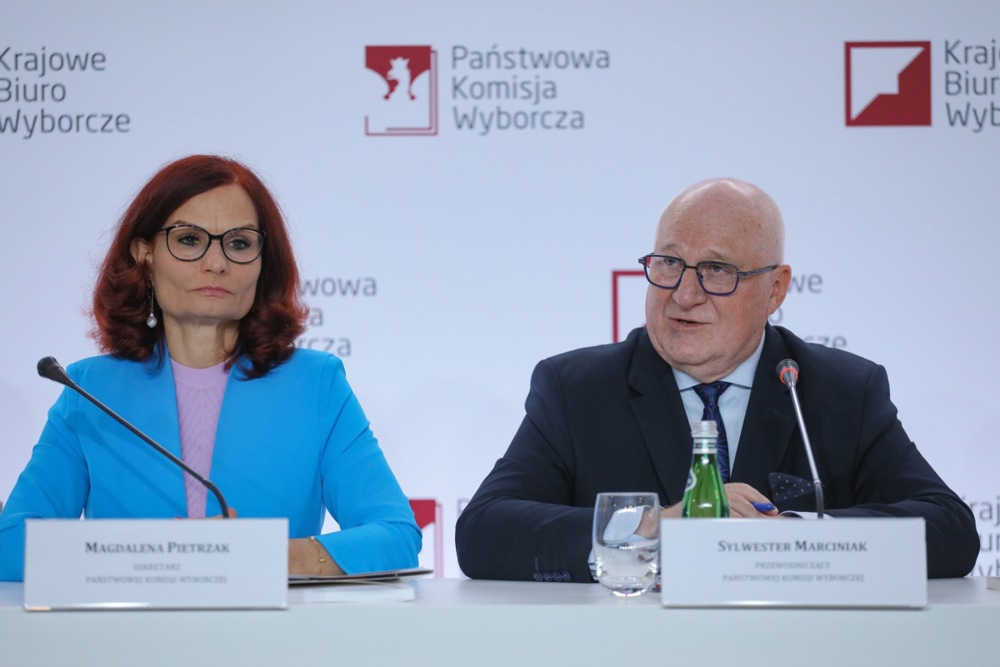Following the annulled elections in Romania, Polish Prime Minister Donald Tusk’s government has said it would propose legislation to move the authority for certifying the results of Polish presidential election due next spring.
On December 9, it emerged that responsibility for certifying elections could be shifted from a chamber of the Supreme Court, the judges of which were appointed during the lifetime of the previous Conservative (PiS) government, to a judicial chamber in which Tusk’s government “had confidence”.
Writing on social media platform X, Polish interior minister Tomasz Siemoniak said: “Romania’s Constitutional court [on December 6] annulled the first round of the presidential election because of [alleged] foreign manipulation during the election campaign. We have no illusions which country is responsible and will defend Poland from such a scenario.”
According to sources close to the government, it will propose that, for next year’s Polish presidential election in May, the certification of the result should be handled by the labour law chamber of the Supreme Court and not, as ordained by existing electoral law, the supervisory chamber of the same court.
However, the Tusk government did not object to the supervisory chamber of the Supreme Court approving certification of results from the parliamentary elections last year, nor for the local and European Parliament elections held in June this year.
The Supreme Court (SN) is Poland’s top court on all issues with the exception of constitutional matters, which are handled by the Constitutional Court (TK).
Sources close to the government have made no secret of their fears that the opposition PiS could attempt to exert influence over the members of the supervisory chamber of the Supreme Court to annul the results of the Polish presidential election if the results do not go the conservatives’ way.
They have also added they felt that, should Tusk’s party launch a challenge to the result of the election, the matter would not be handled fairly by the supervisory chamber of the Supreme Court.
The Polish Government, along with the European Commission and the European Court of Justice, have argued that the supervisory chamber was improperly constituted as its members were appointed by PiS ally President Andrzej Duda on recommendation of the National Judicial Council (KRS).
The KRS is the body that has the responsibility of making recommendations on all judicial appointments. It is itself regarded by the European Commission, European Court of Justice and the Tusk majority to have been constituted in violation of the principle of judicial independence because the body was elected by parliament and not, as before, by senior judges.
Duda and the PiS have disagreed, pointing to the fact that the presidential power with regard to judicial appointments was absolute and that the KRS could only present suggested candidates.
They also said that because the Polish Constitution does not specify how the KRS should be elected, the decision taken by PiS that it would be elected by parliament was legitimate. They added that was similar to the way such bodies are elected in Germany and Spain.
Sources close to the Tusk government admitted that the reason they wished to legislate for the Labour law chamber of the Supreme Court to handle the certification of the election was that they claimed there was no controversy over its composition.
This was also why, during the dispute over the debarring of two PiS MPs from sitting in parliament earlier in the year, Tusk’s ruling majority chose to send the matter for legal review to that chamber, rather than to the supervisory chamber.
The government has already made several appointments to the PKW, a state body responsible for administering and announcing the results of elections.
The PKW earlier this year took a controversial decision to defund PiS on allegations of misspending during the parliamentary election in October 2023, a decision that is being challenged in the Supervisory Chamber of the Supreme Court
Even though there should be no problem for Tusk’s parliamentary majority approving the government’s legislation on the election, it has appeared doubtful to observers if President Duda would approve such a measure.
He has the power of veto, which can only be overturned by a three-fifths majority in parliament – something Tusk’s government failed to attain in last year’s parliamentary election.





